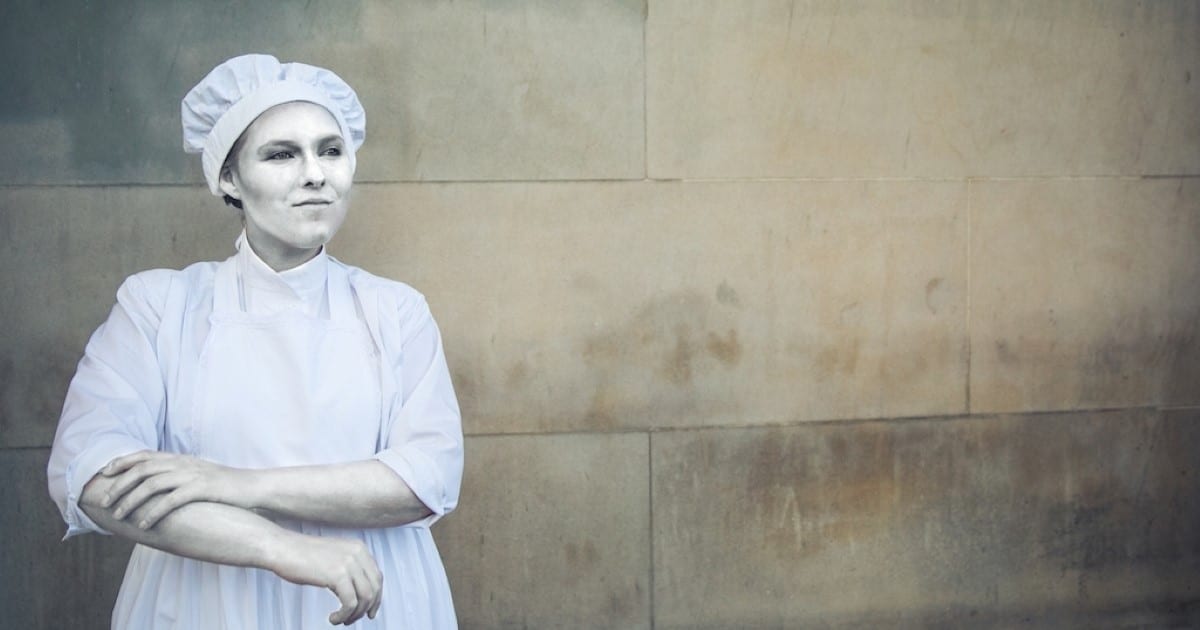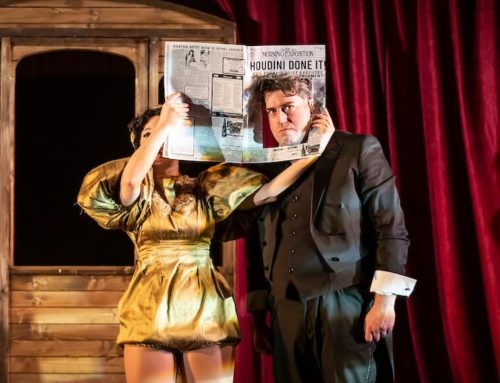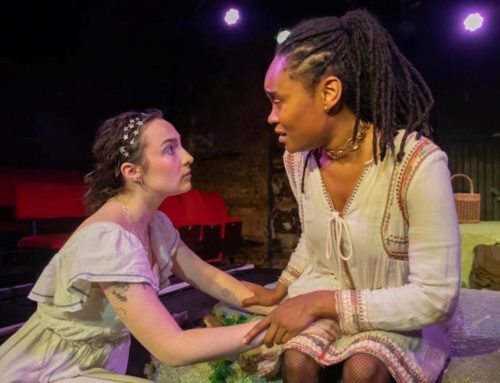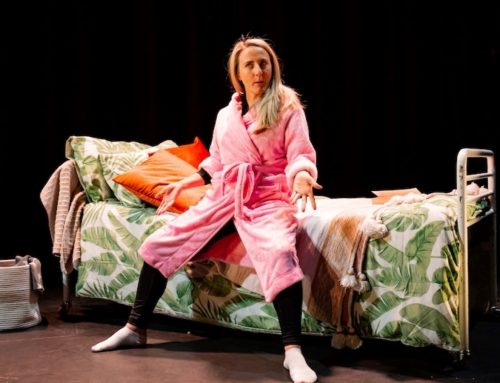Catherine “Kitty” Wilkinson (Samantha Alton), the eponymous protagonist of John Maguire’s solidly watchable bioplay Kitty: Queen of the Washhouse appears at the show’s outset fully bedecked in costume and make-up of marble white. It is an appropriately ethereal choice for a stone statue come to life, which is how Maguire envisages her character, but also for a play much concerned with the ghosts of a city’s past.
Kitty Wilkinson’s life as an Irish immigrant to Liverpool in the early 19th century is one of pain. She loses father, baby sister, and later a husband to drowning. She loses her mother to a slow and brutal form of dementia. For a time, she is indentured to a mill-owner, working 14 hours a day, 6 days a week. Later she collects and sells horse manure as her family’s only means of survival.
But Kitty’s life is also one of great service to her community. She fosters 42 children, opens schools, introduces her neighbours to life-saving theories of cleanliness, and most notably pushes for the establishment of public baths where the poor of Liverpool can bathe. Arguably, her actions directly save dozens from a cholera epidemic. They set the scene for the opening of washhouses across the country that probably save many hundreds more. Queen Victoria presents her with a silver teapot in recognition of her services. In Maguire’s Kitty: Queen of the Washhouse it is the ghosts of the poor and downtrodden that Kitty saves that talk loudest and brightest.
It is a tough ask for any writer to tell the complex life story of a little known character in a 50-minute, single-hander. There are elements in the production that feel out of place. The shipwreck and drownings that mark the young Kitty’s arrival in Liverpool are told through cardboard cut-outs in a 3d lightbox. It is a choice of stagecraft that somehow seems hackneyed.
Ultimately what makes the show worthy of attention is the engrossing and skilled performance by Alton. The Liverpool-based actor plays Kitty as a kind of unstoppable force of nature. She is always on the move – constantly feeding babies, cooking, scrubbing floors, washing clothes, folding linen again and again into ever smaller bundles. The performance adds momentum to what might otherwise be a dry if worthwhile piece of educational herstory. There is much in Kitty’s life that is worthy of Dickens, from her adoption by a blind benefactress named Mrs Lightbody, to the ever-present shadow of “the bulky bullying workhouse”. Alton does her memory credit.
Writer: John Maguire
Director: Margaret Connell
More Recent Reviews
The King of Hollywood. White Bear Theatre.
Douglas Fairbanks was a groundbreaking figure in early American cinema. Celebrated for his larger-than-life screen presence and athletic prowess, [...]
Gay Pride and No Prejudice. Union Theatre
Queer-inspired reimaginations of Jane Austen’s Pride and Prejudice are a more common species than one might initially imagine. Hollywood [...]
Knife on the Table. Cockpit Theatre.
Knife on the Table, Jonathan Brown’s sober ensemble piece about power struggles, knife violence, and relationships in and around [...]






